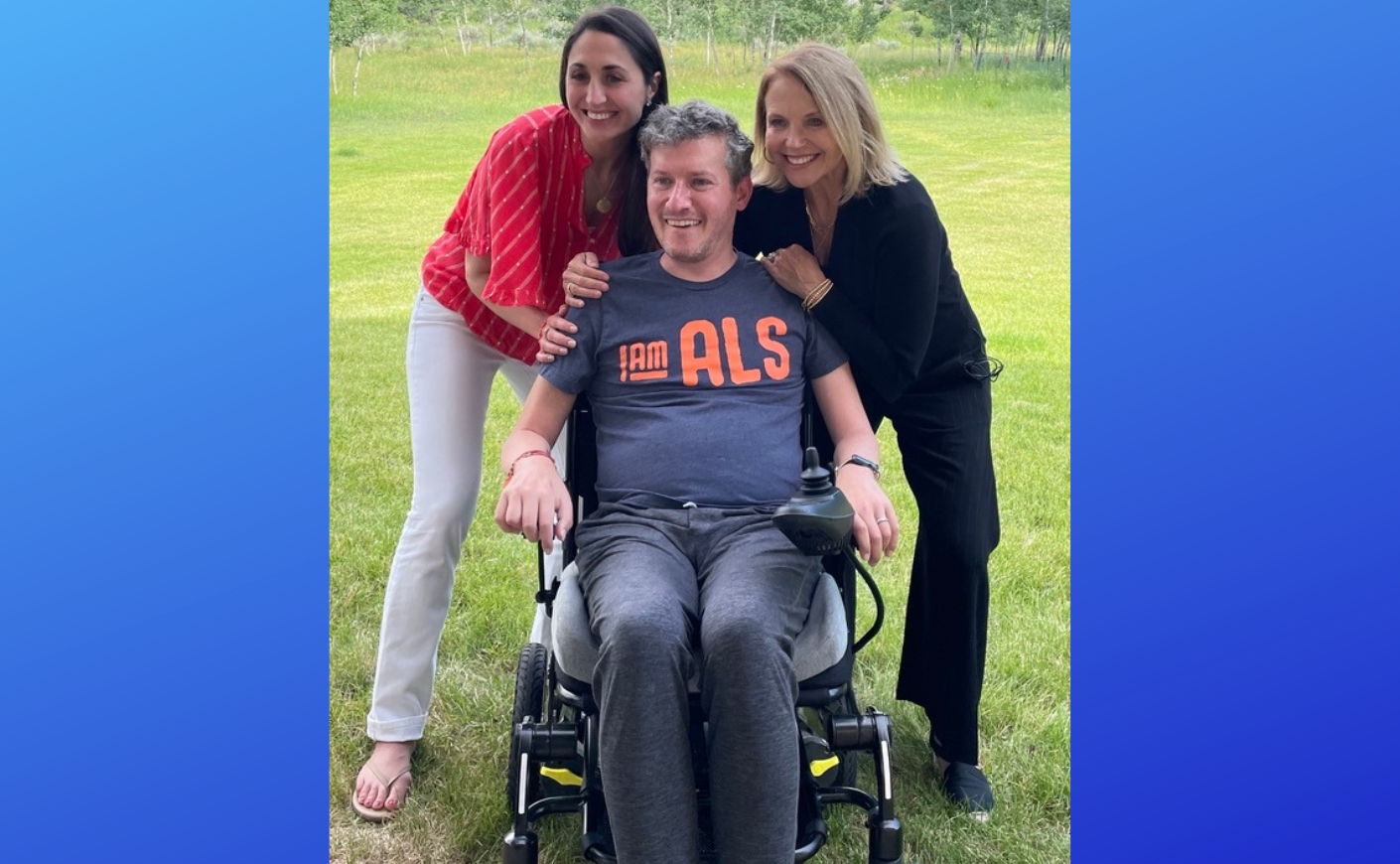Something exciting happened in the world of ALS research in September, but if you’ve been overwhelmed with all the other news to stay on top of, you might have missed it.
But I know just the person to explain it: my friend Brian Wallach. Five years ago, he was diagnosed with ALS at just 37 years old. He and his wonderful wife, Sandra, found out the day they brought their second daughter home from the hospital.
I read about their story in a Politico article earlier this year and have since become an executive producer of an upcoming documentary about the incredible work they have done. You can watch the trailer for the film below:
In September, an advisory committee for the FDA voted to recommend the approval of AMX0035, the third drug ever available for ALS patients, despite the fact that it has yet to undergo phase three trials. Brian, Sandra, and their teammate Evie talked with me about why this is so important, not only for ALS patients but for everyone suffering from a neurodegenerative disease.
First of all, this new development is so exciting, but I think a lot of people don’t understand the significance of it. Tell us a little bit about this drug and what it does for ALS patients.
There have been over 100 clinical trials for ALS patients, and of them, 98 have failed. As a result, there are only two treatments for ALS, and each of those treatments is not a cure, but instead extends life by three to six months. This new drug, AMX0035, has shown to extend life by 10 to 18 months. The average person with ALS only lives two to five years post-diagnosis. To have an extra 10 to 18 months could be almost half of your life. It’s an amazing thing for patients today and gives us hope that we can be here to see the next treatment, which would extend our lives even more.
ALS affects neural pathways, right? So how does this drug slow the progression or change the way ALS is impacting patients?
This drug helps in two ways. Number one, it helps protect our motor neurons. Now, what is a motor neuron? It's the thing that enables you to control all of your muscles. This drug slows down the rate of muscle loss, which is really important because a lot of ALS patients lose their ability to walk or talk.
The second thing that the drug does is reduce stress levels in your body. When ALS patients’ bodies start to malfunction, they produce more stress hormones, which causes motor neurons to die faster. If you reduce the stress levels, you also reduce the death of the motor neuron, which is everything in ALS.
I know you've been working on getting the FDA to approve this drug since Brian's diagnosis in 2017. Why was it such a hard thing to get done?
It was such a challenge because most drugs have to go through a phase one, phase two, and then a phase three trial. The ALS community and the drug company asked the FDA to approve the drug after only a phase two trial. We have proof that the drug is safe. We have proof the drug is effective. We have a disease that is 100 percent fatal and is rapidly progressing. All of that means that we have to approve this drug based on the phase two trial — if they were to wait until the phase three trial is complete, all of the patients with ALS alive today would be dead, which is unconscionable.
We have a legislative team at I AM ALS — patients and caregivers who work on things like this as if it's their full-time job. They were able to rally the ALS community, members of Congress, and other organizations to make it clear to the FDA that the science supports approval, the clinicians support approval, and the patients support approval. By doing that, they were able to help us all speak with a unified voice, which has never happened in the past.
With the FDA approving use of the drug, they'll continue to do phase three trials but the people who desperately need the drug now will be able to use it. Right?
That's correct. The FDA convened an outside group of experts in the neurology space and the committee said there was enough evidence of efficacy to recommend that the FDA approve the drug.
The FDA vote Sept. 29 was really important for two reasons. Number one, it sets up AMX0035 for approval, which for ALS patients is a huge, huge thing. Number two, it signified a shift in the way that the FDA thinks about treatments for rare or fast-progressing diseases. What this vote signifies is that they will look at the data in the context of the disease. That is hugely important. Not only for ALS but for many other diseases, where they have no effective treatments and patients are told, get ready to die.
What's your take on how this unfolded?
Living with ALS, you always think of the worst-case scenario, but this gives me hope. It's almost as if the overall protocol has changed. This could open the door for more drugs, not only for ALS patients but for other people with neurological diseases, like Parkinson's and Alzheimer's.
This is good news for millions of people. It's the first time that we have seen the FDA act with urgency and flexibility, which is hopefully how they will approach treatments in the future.









